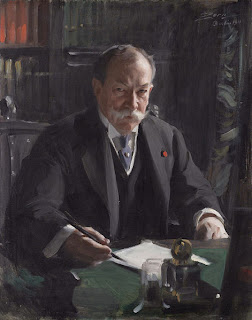Even among the college-educated, there is a tendency to envision the life of a professor as one that includes tweed jackets with leather elbow patches, a book-lined office in an ivy-covered building, and a house in an upscale neighborhood with a fashionable European car in the driveway. The image is understandable, given how hopelessly entwined the academic world has become with relentless social-class striving. After all, education is regarded as a means to better oneself, and “higher” education represents the top rungs on that ladder of universal self-improvement. Certain schools, of course, are seen as better than others (see Reason 3). Those within the academic establishment are obsessed with status, as are those on the outside looking in. Consider the popularity of college rankings.
Institutions, as well as individuals, have an eye toward upward mobility, which accounts for yet another case of academic terminology-inflation (see Reasons 35 and 38): so many colleges have rushed to reclassify themselves as “universities” that there are now community colleges with names like the University of Wisconsin-Waukesha. It is a fad driven by the propensity of students, faculty, and administrators alike to see their institution’s prestige as a reflection of their personal identities. Ironically, the mass movement is leaving the name “college” to venerable and genuinely prestigious institutions like Amherst, Williams, Swarthmore, and Dartmouth—a college with its own medical school.
Academics, of course, have traditionally done little to dissuade anyone from believing that they occupy a privileged social position (see Reason 25). Describing the “democratization of knowledge” that occurred in the mid-twentieth century, author Daniel Flynn argues that “blue-collar intellectuals proved as unsettling to the intellectual elite as the nouveau riche had been to old money.” The term “middlebrow,” he explains, emerged as “a slur” in a new “vocabulary to demarcate intellectual class.” Increasingly, academics have had to think in terms of “intellectual” classes when contemplating their vaunted status, because only a tiny fraction of them live the professor’s life as people like to portray it. The British literary scholar Terry Eagleton recently observed: “Most people I know in academia want to get out… everywhere I go, from Peru to Australia, people are very unhappy in what perhaps were once, you know, ‘the best days of one’s life.’”
Today, the tweed jackets are few and far between. Law professor Erik Jensen laments that professors are developing a new reputation for constituting “the worst-dressed middle-class occupational group in America.” This is, to some extent, the result of a change in attitude on the part of faculty members (see Reason 13). But the lengthening number of years that academics must spend in graduate school (and as adjuncts) in relative poverty and debt do not lend themselves to developing a stylish wardrobe, owning a house in a desirable zip code, or driving a BMW. At many institutions, professors occupy offices that are little better than those of their teaching assistants (see Reason 42). Many commute long distances because they can never hope to afford to live in the leafy neighborhoods near campus. Nonetheless, they are among the extremely fortunate who have jobs despite the terrible academic job market, the severity of which is now spreading rapidly from the humanities and social sciences to the hard sciences. Meanwhile, thousands of PhDs on welfare (see Reason 83) have yet to join the lower middle class.
A short time in graduate school will likely cure you of any false ideas that you may have about modern academic life, but false ideas are often what drive people to graduate school in the first place.

Tidak ada komentar:
Posting Komentar